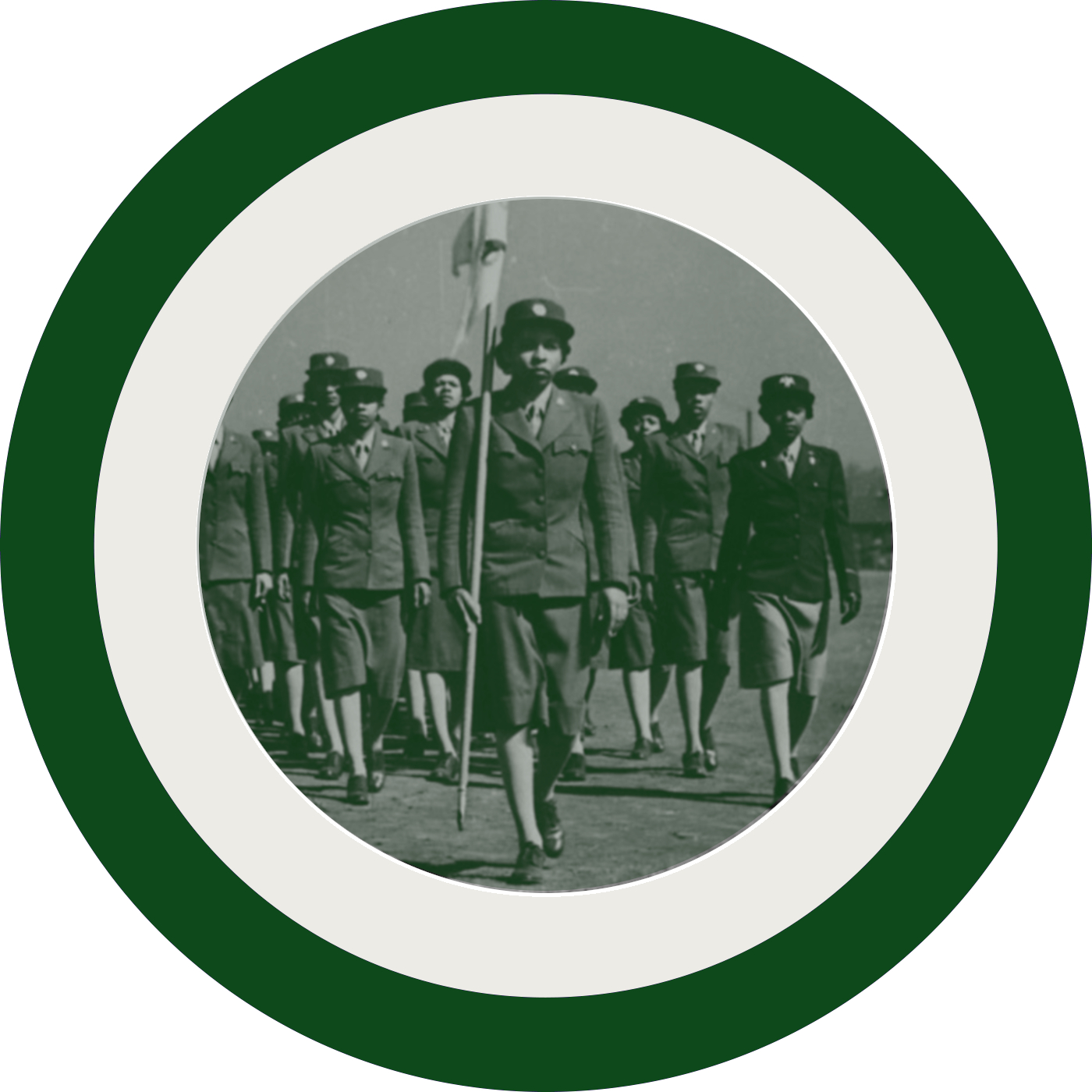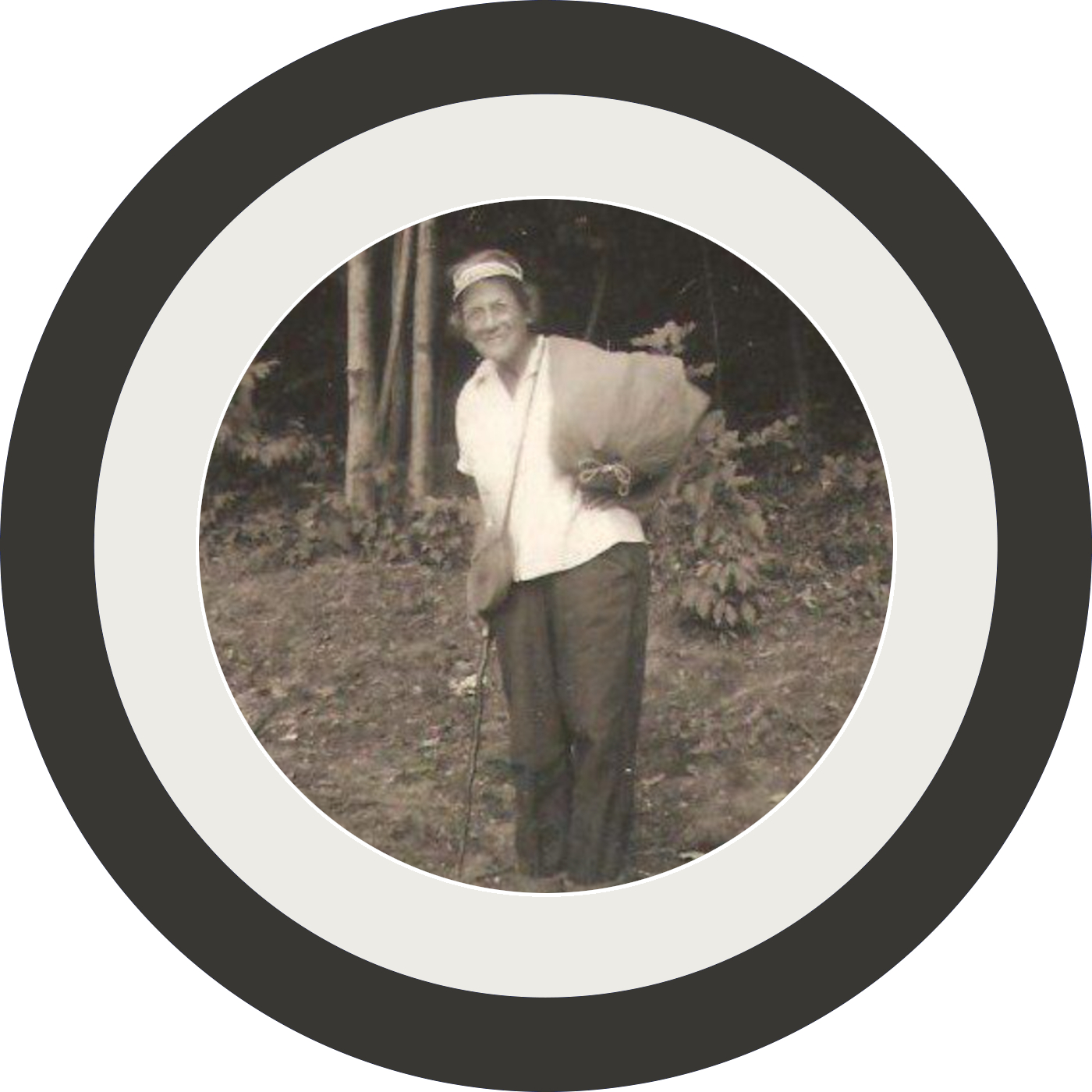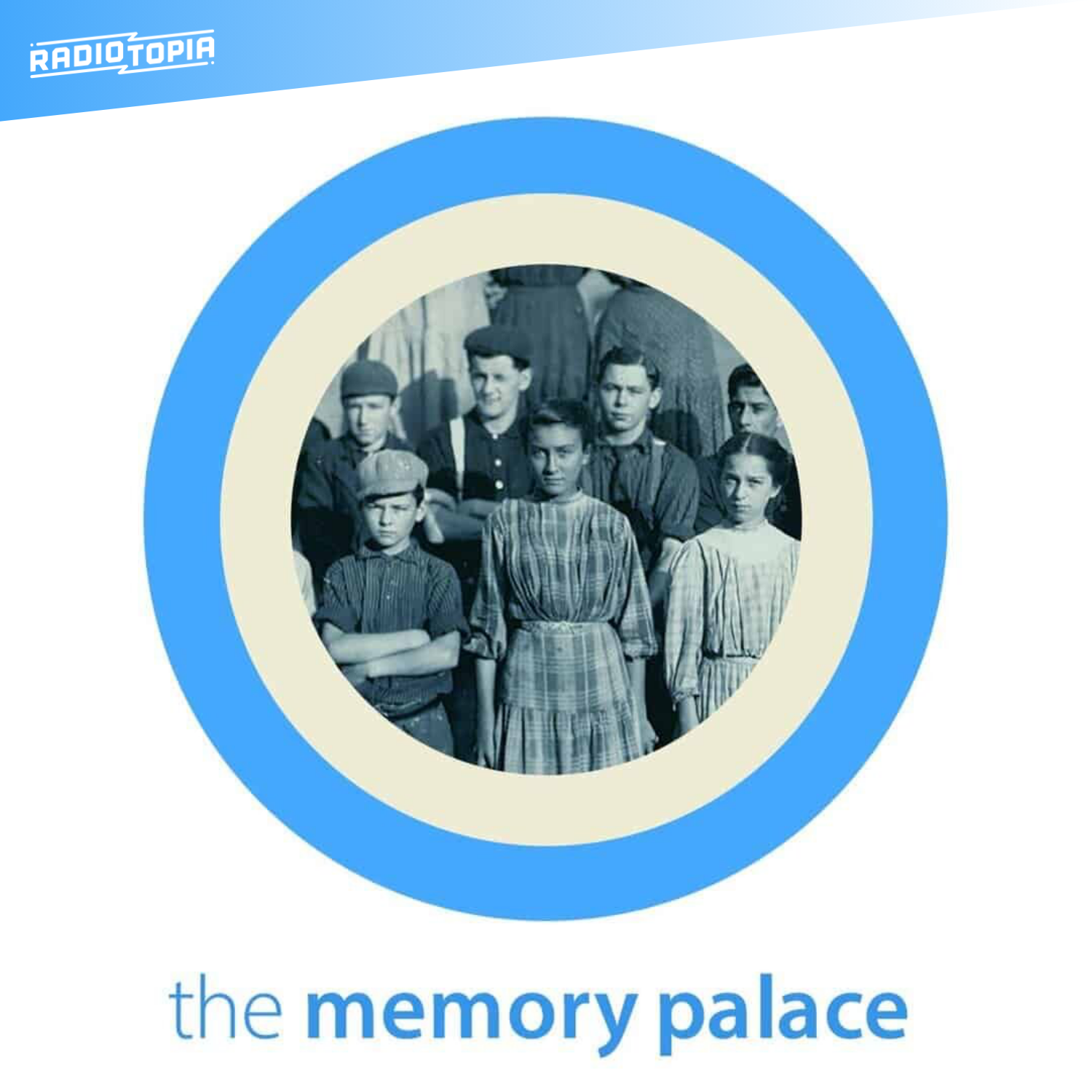Episode 207: The Six Triple Eight
The Memory Palace is a proud member of Radiotopia from PRX.
Music
Inception by radio.string.quintet.vienna
Julie With by Group Listening
Nice Breeze Isn’t It? by friend of the show, Simon Rackham
Wet by Taylor Deupree
Times Like This II by Jean Kopperud and Stephen Gosling
Broad Channel by Bing and Ruth
Cradle (with Akira) by ghost and tape
Lithosphere by Caoimhin O Raghellagh
and by Caoimhin O Raghelagh and Thomas Bartlett
Notes
- You can find the website I mentioned here; it’s a one-stop shop, really, for information on the 6888t. .
Learn about your ad choices: dovetail.prx.org/ad-choices
Press play and read along
Transcript
Speaker 1 Support for this podcast and the following message come from Sutter Health.
Speaker 1 Whether it's prenatal care or post-menopausal guidance, Sutter's team of OBGYNs, doctors, and nurses are dedicated to building long-term relationships for lifelong care.
Speaker 1 With personalized care plans for every patient, it's their commitment to supporting every woman at every stage of her life. Learn more at Sutterhealth.org.
Speaker 2 This episode of Memory Palace is brought to you by LifeKid. When you're a kid, you need all sorts of help, learning your ABCs, tying your shoes.
Speaker 2 Then you become a teenager and a young adult, and if you are like I was, you need all sorts of help, but you are hardly asking for or accepting any of it.
Speaker 2 Then you get older, you start looking around and thinking there has got to be a better or faster or safer way to do this thing, whatever that thing might be.
Speaker 2 And while you are looking around, you will notice that there's a ton of nonsense, there are a lot of quick fixes, a lot of just mumbo-jumbo.
Speaker 2 But then there's LifeKit, a podcast from NPR, where you can find thoughtful, expert-guided ideas and techniques about tackling issues in this thing we call life.
Speaker 2 LifeKit delivers strategies to help you make meaningful, sustainable change. And the show is fun.
Speaker 2 You're flipping through episodes and bopping around thinking, yeah, I do kind of want to know what this whole thing is with seed oils and hear from people who really know and sort out the science from the hype.
Speaker 2 And then you put it on, and it is delightful and informative. And then you're kind of idly listening to this one about how you can avoid buying counterfeit products online.
Speaker 2 And you're like, yeah, I do that technique, and yeah, I know that one too, and yeah, sure, that one, I'm no dummy. But then you hear a couple more, and you're like, Oh, shoot,
Speaker 2 yeah, I almost fell for that yesterday, and oh, yeah, I need that one for my back pocket. LifeKit isn't just another podcast about self-improvement, it's about understanding how to live a better life.
Speaker 2 Starting now, listen now to the Life Kit podcast from NPR.
Speaker 2 This is the Memory Palace. I'm Nate DeMayo.
Speaker 2
They were welcomed to the war with the roar of a rocket. They knew the sound.
They had been warned. The infernal hum of the V-2.
Speaker 2
The Nazis' buzz bomb that had terrorized England. They knew what to do.
They had been trained. So they spent some of the first moments of their tour of duty ducking and hoping they wouldn't die.
Speaker 2 And when the explosion came, far enough away that they all lived beyond their first real day of World World War II,
Speaker 2 they didn't know that it would be the only time that they would come under fire.
Speaker 2 That their days shooting rifles and tossing grenades into bunkers and basic training were the last ones in which duty would require they wield weapons of war. But their hardest days were just ahead.
Speaker 2 For when the women of the 688, hailed as America's first all-black female battalion, though there were at least three Latinas in the ranks too,
Speaker 2 when they arrived at the weathered warehouses on a gray morning in gray Birmingham, England, and dragged open the groaning doors,
Speaker 2 they realized what they were in for.
Speaker 2 In the gloom of the cavernous room, the weak winter sun swatted away by blacked-out windows, was a mountain of mail.
Speaker 2 Hundreds of thousands of letters and packages. With more ceiling to floor untold millions stuffed into other dark warehouses.
Speaker 2 It was February 1945, eight months after Normandy, Normandy, and the Allies were deep into their final, brutal push through France toward Germany. The women of the 6888th Battalion, the 688,
Speaker 2 were told by their commander that morale was low in the foxholes in the snow, in the shattered farmhouses where GIs took shelter and prayed to make it through another day.
Speaker 2
They didn't need to be told. Everyone knew.
The Battle of the Bulge had just been won, but at tremendous cost. Young men freezing in a forest, fighting and dying day and night for five weeks.
Speaker 2 Millions of American men were deployed right then, four exhausting years into the war, on European battlefields, in the groaning holds of ships hot and rank in the Pacific.
Speaker 2 And so many of them hadn't heard from home in forever. No letters from friends, grandmas, abuelas, bubbies, nanas,
Speaker 2
to let them know that they were still out there. that there was a world they still recognized.
Real food, baseball games, subways, dogs who ran along picket fences when you rode by on your bike.
Speaker 2 A world worth fighting to get back to.
Speaker 2 Worth fighting for.
Speaker 2
They weren't getting the mail. There weren't men to sort it.
They were offloading howitzers and packing parachutes.
Speaker 2 The whole military postal system had been backed up since before D-Day, but they got worse at Christmas. With all the cards and care packages, everything collapsed.
Speaker 2 In those millions of messages, father to son, brother to brother, from mother, in her own hand, the way she looped her L's,
Speaker 2 they were all stuck in Birmingham.
Speaker 2 There were letters that had been sitting in those warehouses for two years.
Speaker 2 The women of the 688 were given six months to get them moving.
Speaker 2 Some of the packages were already moving.
Speaker 2 Any food, fruitcakes, Aunt Fanny's famous lemon drop cookies baked with such love, packed with such care, were were a treat for the rats, which were huge and were everywhere.
Speaker 2
The warehouses were freezing. The letters were faded and rain-streaked.
So many preposterously addressed. Some kid would write, to my big brother Eddie, a soldier in Italy, and expect it to find him.
Speaker 2 Their job was to find him, no matter how hard, no matter how long it took.
Speaker 2
But at first they just needed to start digging. About 750 women set to the task, with others charged with their support, cooking, driving, keeping watch.
The 688 was on its own.
Speaker 2 The army was stretched so thin there was no one to help. And these women were black, in a segregated army.
Speaker 2 Eleanor Roosevelt and her friend Mary MacLeod Bethune, a special assistant to the Secretary of War, a black woman herself, and one of the truly great Americans, had pushed for black soldiers to be allowed into the Women's Army Corps, had advocated for the black wax, as they were known, and for the formation of this Central Postal Directory battalion.
Speaker 2 But just because the Army had to let them in, it didn't mean it wanted them there.
Speaker 2 And the women confronted racism and misogyny at every turn, dealt with sexual harassment and racist taunts, second-class accommodations, had members kicked off all-star basketball teams because they were never allowed to play with the white wax.
Speaker 2 When three members of their battalion died in a Jeep accident, the military would not pay for the burial.
Speaker 2 The dead soldiers, sisters, in arms had to do it themselves.
Speaker 2 And this was all while the laws and the people of England were helping them see just how different life could be than the ones that they had lived at home.
Speaker 2 Laws that let them dance at integrated nightclubs, eat at integrated restaurants, and people who brought them into their homes.
Speaker 2 But the women of the 688 were almost always at work.
Speaker 2 They devised a system that had them sorting mail in three shifts, working 24-7.
Speaker 2 They got to the point where they were sorting and sending 65,000 pieces of mail each day, working in drafty buildings often in near darkness, bundled up in scarves and woolen hats and parkas, but with their frozen fingers free so that they could flip through the letters.
Speaker 2
They had to hold the whole map of the war in their heads. They knew it as well as the generals.
Which regiments were where, which battalions were on the move, which units were landing at Le Havre.
Speaker 2 So they could get the mail where it needed to go.
Speaker 2 So they could track down some private first class who had dropped behind enemy lines under cover of night five months before, but then hooked up with another that had folded into a platoon that was marching right then on Lyon.
Speaker 2 They did figure out which, among them more than 7,000 Robert Smiths then serving in the American military, was which.
Speaker 2 And was this the one who needed to hear from his father about his sister's illness?
Speaker 2
or get word from that girl from the carnival, whose face was starting to fade in his memory. Though there was still this sense of her that seemed so clear.
A letter that said she was waiting still.
Speaker 2 Sometimes it would take weeks to find the soldier.
Speaker 2 Sometimes they never could.
Speaker 2
Sometimes they would find that the young man whose name was written on the envelope was never coming home. They were given six months to process unknown millions of pieces of mail.
It took them three.
Speaker 2 When they were done, some women of the 688 were sent home, while others were shipped off to France to attack other paper mountains in other brick warehouses.
Speaker 2 They were there on Liberation Day.
Speaker 2 Some stayed on after the German surrender, were put up in two of the finest hotels in Paris.
Speaker 2 They sorted mail.
Speaker 2 They tracked down package thieves. Some nights they danced till dawn.
Speaker 2 By the following January, all of them were home.
Speaker 2
In February of 1946, roughly a year after its formation, the battalion was disbanded. There was no special ceremony.
The women received no commendation.
Speaker 2 No effort was made by the nation to enshrine their service in the history of the war that it had just won.
Speaker 2 And the women were left to find their own way through their lives as civilians wherever those lives might lead.
Speaker 2 in a country that in many ways was not as free for women like them as the ones they had just left. The ones that they, in their way, had helped liberate.
Speaker 2 But the thing about history is that sometimes it is just sitting there in some pile in some warehouse, just waiting for the right people to start sifting through it.
Speaker 2 They showed up about a decade ago. Just a few people at first, including a retired Navy man named Charlton Philpott, who proposed a monument to the women of the 6th AAA,
Speaker 2 and a researcher named Dominic Johnson, who has diligently maintained and updated a website dedicated to their story and their service.
Speaker 2 It has tracked the other work of other researchers and later legislators whose diligence and perseverance and attention to detail probably would have been appreciated by the women they sought to honor.
Speaker 2 Their work got that monument built in 2018 in Leavenworth, Kansas, and has in the early years of the 2020s
Speaker 2 only the smallest handful of the more than 850 women who served in the battalion still alive to attend the ceremonies and smile for photos in the paper, sit next to their daughters and grandkids on the couches of their living rooms and nursing homes as the TV cameras set up for interviews.
Speaker 2 They have been formally honored by the United States Senate and the House of Representatives. Finally,
Speaker 2 sometimes it takes people a long time to get the message.
Speaker 2 This episode of The Memory Palace was written and produced by me, Nate DeMayo, in September of 2023. The show gets research assistance from Eliza McGraw.
Speaker 2 It is a proud member of Radiotopia, a network of independently owned and operated listener-supported podcasts under the protective umbrella of PRX, a not-for-profit public media company.
Speaker 2 If you ever want to support the podcast directly, you can make a donation over at radiotopia.fm slash donate.
Speaker 2 If you want to follow me on the platform formerly known as Twitter, you can do so at TheMemory Palace. That is the same handle for Facebook.
Speaker 2 And I have also, after dragging my feet for years and years, mostly to protect and preserve what little is left of my ability to pay attention to anything ever. I have joined Instagram.
Speaker 2 I will be posting stuff about the show there.
Speaker 2 You can follow me at The Memory Palace podcast on Instagram. I'm not entirely sure what I'm going to be doing with that, but I will be figuring it out.
Speaker 2 And if you have any suggestions about what I should be doing, you can email me with those suggestions, or you can email me with just about anything else to nate at the memorypalas.org.
Speaker 2 I'll talk to you again.
Speaker 2 Radiotopia
Speaker 2 from PRX





